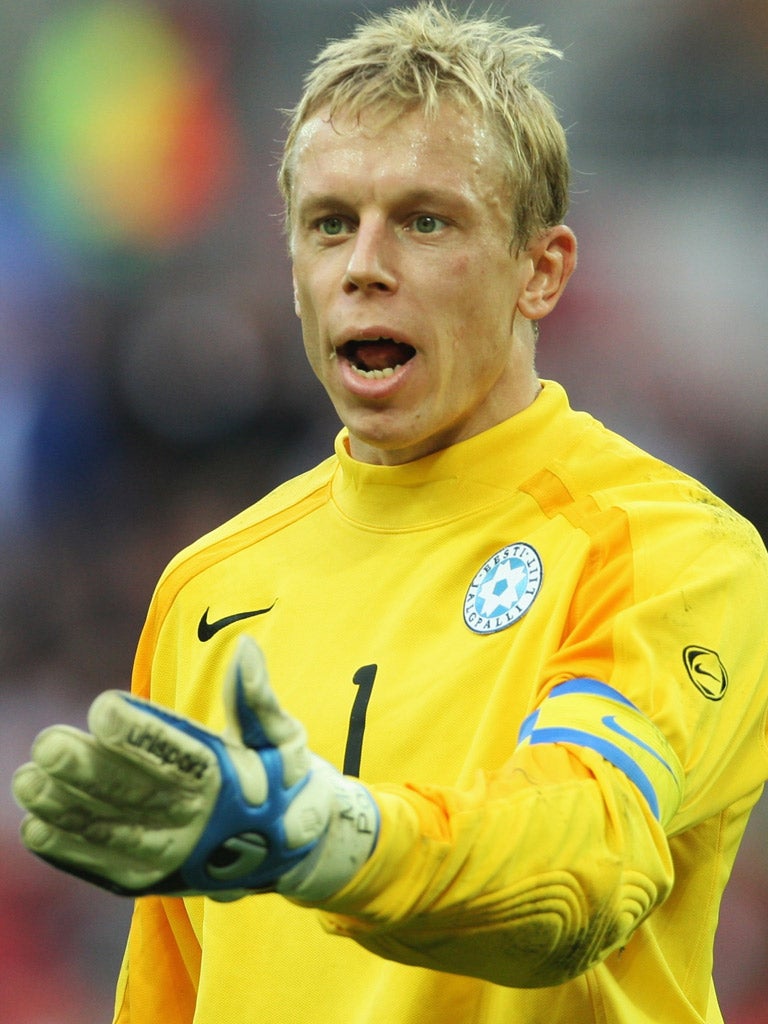Estonians are slowly catching football fever
Success for Ireland's foes may help to usurp basketball and skiing in nation's consciousness

One Englishman has been mightily inconvenienced by Estonia's unexpected appearance in tomorrow night's European Championship play-offs, not that he is complaining.
Keith Boanas is coach of the Estonian women's international team, based at the national stadium. Such is the unprecedented interest in the play-off first leg against Republic of Ireland, his office at the Le Coq Arena will be transformed into a VIP box for the night.
"I've got to clear up," he said from Tallinn last night. "The place is going to be packed. They've brought in extra seats and the place is buzzing. It's a big thing over here."
It is not quite true to state that Estonia have never appeared in a major tournament, but it is a long time since their outing in the 1924 Paris Olympics, when they lost by a penalty in the first round to the United States.
For a variety of reasons, mainly geo-political, Estonia's impact on the global game has been negligible ever since. Having failed to compete in the early World Cups Estonia, which had only become independent with the break-up of Tsarist Russia in 1918, disappeared again into the Soviet Union after the Second World War. With football seen as a Russian "invader" sport it went into a steep decline among native Estonians, who preferred basketball, cycling and cross-country skiing.
That began to change in the 1970s when a youth coach with nationalist sympathies, Roman Ubakivi, started Estonian-language training groups having realised, as he later wrote, his initial dream of "an armed organisation that could release Estonia from Soviet power [was a path] that led to doom". Out of his initiative would eventually emerge Mart Poom, who would play most of his career in England, notably for Derby County and Sunderland.
Independence, in 1991, inevitably provoked an occasionally bitter debate about the inclusion of players of Russian descent – at least a quarter of the population – in the revived national team. Such internal divisions, a lack of international experience, and quality meant Estonia struggled in their early qualifying campaigns. The national team only came to wider attention when they notoriously failed to turn up for a home World Cup qualifier against Scotland in 1997.
Gradually, however, the team have become more organised and achieved better results culminating in last year's 3-1 victory away to Serbia that ultimately proved the difference in qualifying, Estonia edging Nemanja Vidic's team out of second place behind Italy by one point. Now they hope to emulate Baltic neighbours Latvia, who reached Euro 2004 and drew with Germany.
In reaching a play-off, Tarmo Ruutli, in his second spell as coach, has already eclipsed several foreign appointments. It is quite an achievement, given he does not have a single player in a major Western league at his disposal. There is a quartet of players based in the Russian league, notably top scorer Konstantin Vassiljev, of Amkar Perm. Two play in the Dutch league, including captain Raio Piiroja, who struggles to get a start for Vitesse Arnhem.
They are not, though, to be under-estimated, said Boanas. "Vassiljev is a top-quality player and Tarno Kink, though he has struggled to get games with Middlesbrough, has played very well for the national team. They've a decent goalkeeper and will also have Joel Lindpere back from the New York Red Bulls, where he's been playing alongside Thierry Henry. I believe they can cause an upset."
Success would be a huge fillip for a domestic game which is low-key. League attendances are tiny, with last year's average gate 160. Even free entry could not entice more than 375 people to watch Flora Tallinn win the title last week. Most teams are part-time and with so little investment there is concern games are prey to match-fixing.
"I think generations lost the habit of coming to games," said Poom, who is now sporting director for Flora. He added supporters prefer to watch the English Premier League on television. "The domestic standard is poor," said Boanas, "and with gates so low clubs cannot keep players. But reaching the play-offs has already attracted interest and brought in new sponsors."
The former Charlton Athletic Ladies and Millwall Lionesses manager added: "Football is probably the most popular sport here now. This hasn't yet caught the imagination the way it would have done in some countries, but it has made people sit up and think, 'Oh, we have a decent football team'. If they could reach the finals it would be like advancing 20 years in one jump."
Subscribe to Independent Premium to bookmark this article
Want to bookmark your favourite articles and stories to read or reference later? Start your Independent Premium subscription today.

Join our commenting forum
Join thought-provoking conversations, follow other Independent readers and see their replies